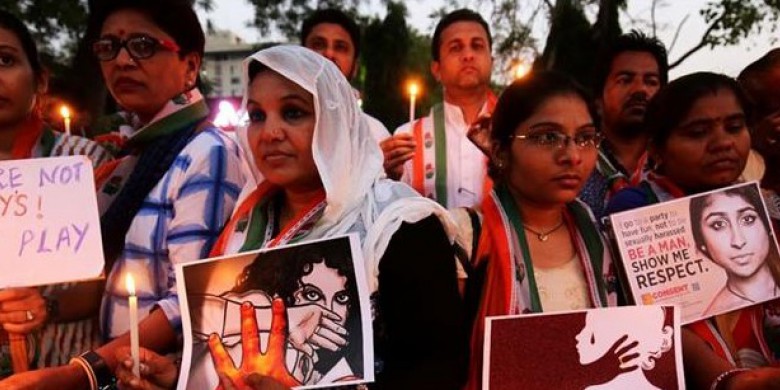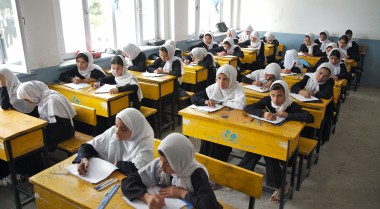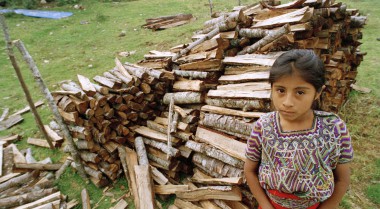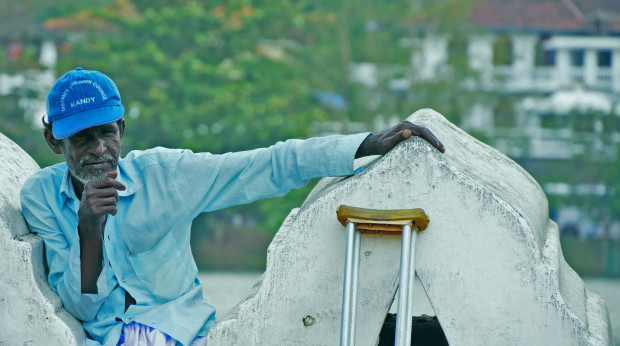
Mobilising for Justice: #JusticeForAsifa
All of last week, India has been rocked by an explosion of opinion, scathing views, and loud demonstrations all over the country demanding #JusticeForAsifa – an eight-year old girl belonging to the nomadic Bakarwal (Muslim) community in the state of Jammu and Kashmir, who was kidnapped, sedated, held inside a temple, gang raped and brutally murdered in January this year. With the chargesheeting of the accused (Hindu men) by the Jammu and Kashmir police crime branch last week, along with indicating the motive to beyond one of sexual violence, it has sparked off a fresh round of heated exchanges between the already polarized communities along religious lines. According to the chargesheet, the main accused had planned and instigated his juvenile nephew and six others to commit this crime to chase out the nomadic Bakarwals from grazing their cattle in the Hindu neighbourhood. That the list of accused persons includes two policemen (belonging to the Hindu community) is not just shocking, but yet another instance where protectors turned into predators.

Sadly the recent agitation in the country began with the focus not so much on the gruesome nature of the crime, but rather about questioning the credibility of the investigating agency which has ascribed a communal and political motive for the sexual crime; sections among the Hindu community have asked for another investigation carried out by national premier investigation agencies likes the Central Bureau of Investigation or the National Investigation Agency. And some politicians of the Hindu right wing party in the state of Jammu and Kashmir went even further in defending the accused, whilst few lawyers from Kathua district (where the crime was committed) attempted in preventing the police from filing their chargesheet. That certain sections of the society aimed to discredit the investigation because the motives attributed in the charge sheet have been rather unpalatable, has been the tinder to spark off fresh rounds of communal tension in the country.
Is it a sexual crime or a political one? Is making this distinction necessary or important to proceed with the prosecution? Rape as an instrument of war is not new, especially in this part of the subcontinent. However, it gains greater salience in the political context within which the crime has been planned and committed, and the manner in which it reinforces the communal divides strengthened by political grandstanding. Not to mention the fragility of the criminal justice system that's stuck between a rock and a hard place, finding it a challenge to navigate beyond the sexual and inhumane nature of the crime to expose the political and communal motive behind it. It now has to contend with politically-motivated sexual assault, one that is backed by a certain section of political elites.
Will the political motive ever be established? Given that the attribution and establishment of motive will do little to change the actual sentencing, what then will be the incentive to establish the alleged political motive of the crime? What will be its impact?
Already the question being asked is when did the crime become political - when the opposition picked it up as an issue? Or when the young child from the Muslim Bakerwak community was picked up as a target?
In a communally charged country, already witnessing a steady increase in crime against minorities alongside virulently polarized narratives, and gearing for elections next year, situations such as these challenge the nearly shredded shroud of social cohesion. #JusticeForAsifa is therefore not just a rallying call for justice for the innocent life that was brutally snuffed out, but a mobilizing moment against orchestrated communal cacophony.
Written by Mallika Joseph - GPPAC Policy Advisor and Regional Coordinator for South Asia


